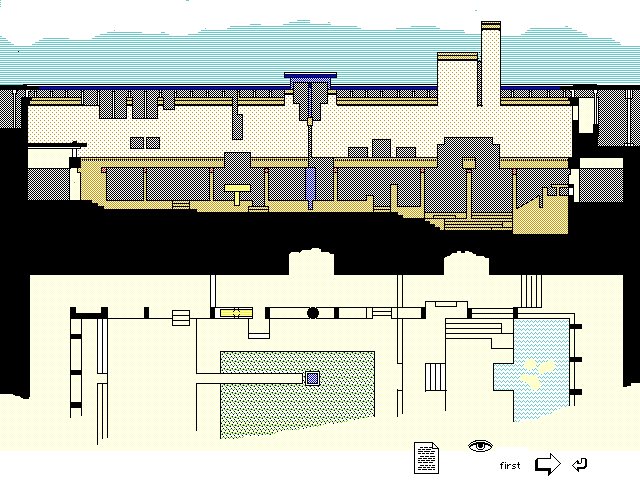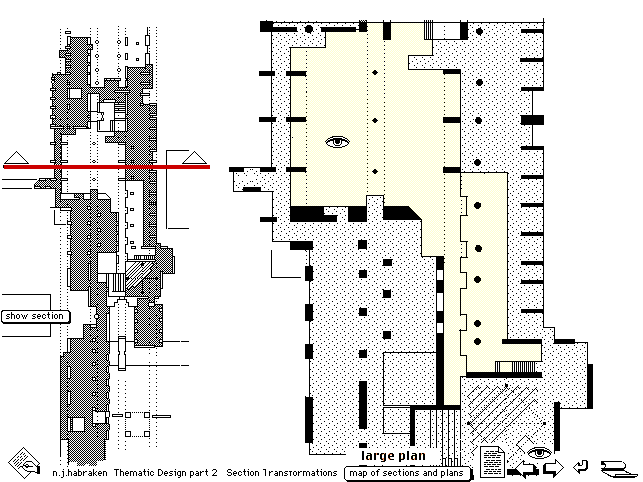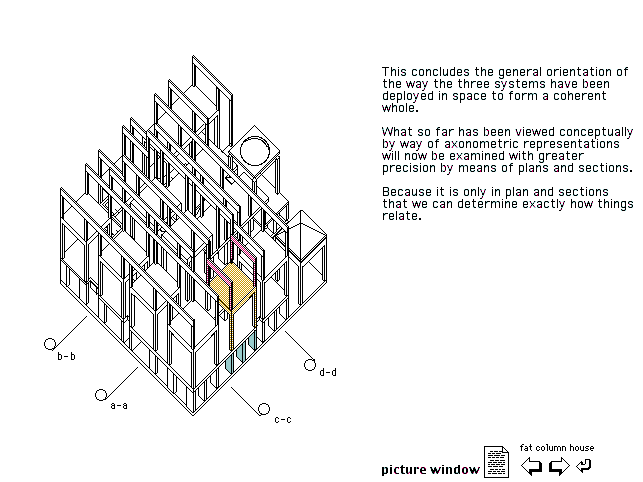|
Thematic Design course
_____________________
one:  two: two:  three: three:  more to follow.... more to follow....
This is the course I taught at MIT. It is described to some extent in the article in Places: "Control of Complexity"
The course was the product of dissatisfaction with the traditional studio format. Studio is good to learn to design under pressure and to stick to your guns and defend what you have done. It is also good to emulate a teacher's architecture and, by doing so, find your own way if you are strong, or if you are lucky enough to find a really good teacher. So far so good. But Studio is a bad environment to learn actual design skills which I would rate, minimally, as the ability to manipulate complex architectural form with ease and confidence.
The Thematic Design course was set up to teach skills in complex form manipulation and control. We did not discuss 'meaning' very much, nor 'program' or 'function'. Once you know how to deal with architectural form, you can instill it with the meanings you value, make it serve the programs submitted to you and to accommodate the functions asked for. Over time, students found the course gave them strength and confidence in studio and for the same reason faculty teaching studio encouraged students to take it.
Of course, there is no intention to propose a particular 'style' either. The examples given are inevitably showing a certain architecture, but the purpose is to convey a way of working and not an architecture.
All exercises are based on the concept of form-transformation and encourage the student to proceed, step by step, from a simple first form towards an increasingly complex and large whole. This approach, subsequently, is applied to increasingly difficult subjects.
I taught the course for five years. Later, I began to compose a number of 'exercise stacks' in SuperCard format, intended to give examples of, and explanations about, the exercises we had done. Of the seven stacks so planned, three were actually completed. Recently, with the help of Prof. Stephen Kendall of Ball State University, these have been converted into Flash format and are now available to all platforms.
|